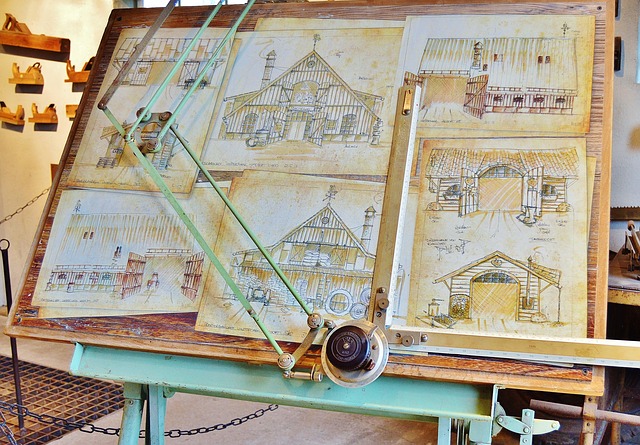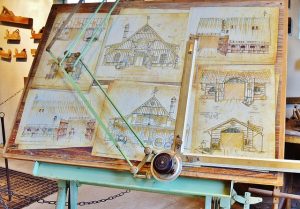
by Dave Cooper | Jul 28, 2017 | A2R, Theory
Looking for something from a relationship it cannot give you

This is the second of three posts where we look at addiction as an inappropriate relationship. Why deepening a relationship with a ‘dead’ or inert thing is so tempting to some and what is fundamentally flawed with the concept as a strategy.
In the first post we looked briefly at the general problem with ‘bonding’ with ‘dead’ or inert things. In this episode we will look more deeply into the frustration built into such relationships. What I have come to call ‘The addictive trap’. So you will learn about how you have set up a trap when you ask for something from a relationship that it does not have to give.
“What you need it can’t give you”
So your problem is now becoming obvious. You are addictively involved with something that is not alive! It is inert or dead if you prefer. Your temptation and vulnerability at this point is clear. All the threat is coming from living things.
All your difficulty is with living things. Living things disappoint you. Living things change. Living things question you. Living things look back at you when you look at them. Living things ‘see you’, maybe they judge you. Sometimes they are disappointed in you. Living things hold you to account on things you said you would do.
Your substance/behaviour does not question you. Your substance does not argue with you. Your substance is consistent. You can deepen your relationship with the substance without any threat of greater vulnerability or exposure. Your substance/behaviour does not examine you or judge you. It never questions your decisions, your wisdom or your intelligence.
So this makes it clear why you have been tempted into this relationship and invested more in at than you should. But there is one thing I have not mentioned and that made all the difference! Your substance/behaviour makes you feel better! Like an old friend you look forward to meeting up again. It can feel exciting to think about another encounter. Often your ‘living’ relationships do not seem so exciting. They have often left you feeling worse not better. Once an episode is over you have often felt worse (hangovers, withdrawals, the state of your bank account etc.). But that is easy to blame on yourself, not the relationship. It’s your shame, your problem. But ask yourself now. If any living person left you in this state, would you continue in the relationship?
Understanding the trap you are in
 When you become dependent or addicted to something you have entered a trap. Everyone would recognise that, but what kind of trap is it? The basic understanding of the trap is that you have started doing something or taking something that is ‘addictive’. In other words the thing itself has the quality of addictiveness. Have you heard yourself say “that thing is soooo addictive”. There is no doubt that things, particularly things that have been designed as such, like cigarettes and internet gaming are ‘moreish’. One of the biggest, television, has had us as a culture for a long time.
When you become dependent or addicted to something you have entered a trap. Everyone would recognise that, but what kind of trap is it? The basic understanding of the trap is that you have started doing something or taking something that is ‘addictive’. In other words the thing itself has the quality of addictiveness. Have you heard yourself say “that thing is soooo addictive”. There is no doubt that things, particularly things that have been designed as such, like cigarettes and internet gaming are ‘moreish’. One of the biggest, television, has had us as a culture for a long time.
But this is a very limited picture of the trap you are in. I want to help you develop that understanding now by saying firstly that this trap does not only include what is in the substance or behaviour. You are in relationship. That means you are playing a part in what is made between you. To understand the trap you are in you have to include yourself in your picture.
The real nature of the addictive trap is the way you have to keep using because that elusive state didn’t happen. You have to keep looking because you didn’t get what you were promised, but maybe it will be in that next photograph? You didn’t get that contract, that big win. The thing that would really do it for you never turns up.
When the problem and the solution become the same thing
 it is at this point that the problem becomes very real. The addictive trap is not really ‘felt’ until the solution to your problem becomes the very thing that produced the problem in the first place! This brings us to one of the best definitions of addiction.
it is at this point that the problem becomes very real. The addictive trap is not really ‘felt’ until the solution to your problem becomes the very thing that produced the problem in the first place! This brings us to one of the best definitions of addiction.
When your problem and your solution become the same thing.
Wanting something for nothing
You got into this trap because you believed you were getting something better than what you had. There is a good chance that you mistook it for something deeper, even something spiritual. In fact it was something much more shallow. Real connections with life are challenging and stretch us by their complexity and uniqueness. This relationship produces ‘brain chemicals’ that can seem to be profound and deep but you got caught in an old idea that catches many of us. You wanted something of value but didn’t want to pay for it. You wanted something for nothing!
In my own case I was typically vulnerable in so many ways. I was young when first introduced to drugs and alcohol. So I recovered (physically) very quickly.The idea that this habit did not seem to be doing any serious damage is one of the most important ways of getting hooked. I was very disappointed with life. As a youngster in my early teens life had seemed to go very wrong. I couldn’t handle anything that called for consistency or discipline. Alcohol stopped me feeling anything. As an anaesthetic it is very effective at removing feelings and like a lot of other people I mistook the removal of bad feelings for the addition of good ones.
But what was I really trying to do? Here it is in a nutshell. I was trying to feel good without earning it! In the early years I was doing nothing that I had any right to feel good about.
 I had to learn to express my feelings in an appropriate way with another living person. So what you have been looking for this relationship can’t give you! Yes, you are connected but not with life. What you are doing can be a substitute for a while but it will never give you what you really need because it doesn’t have it to give.
I had to learn to express my feelings in an appropriate way with another living person. So what you have been looking for this relationship can’t give you! Yes, you are connected but not with life. What you are doing can be a substitute for a while but it will never give you what you really need because it doesn’t have it to give.
So your attraction to this relationship is that it does not change, it does not challenge you, it does not surprise you or question you. But it cannot offer anything deeper than what it is, an inert thing that does not feel, does not change and cannot decide to alter the relationship in any way. Think about this question “are you ready now to accept the challenge of managing a relationship with someone alive, real and with the ability to make those changes”? The real nature of the addictive trap, the deeper understanding of your problem is to realise that you are trying to get something out of it that it hasn’t got to give. Connection with life!

by Dave Cooper | Jun 2, 2017 | Families
Addiction in families – A Family Illness?
 Addiction in families is an issue as old as addiction itself and this is the first in a series of articles relating to the family. It will offer lots of practical help and things you can do to improve the family health. You could start by downloading my ebook The five big mistakes families make…. on the subject.
Addiction in families is an issue as old as addiction itself and this is the first in a series of articles relating to the family. It will offer lots of practical help and things you can do to improve the family health. You could start by downloading my ebook The five big mistakes families make…. on the subject.
As far back as 1935 Alcoholics Anonymous was calling alcoholism ‘a family illness’. Of course they were talking particularly of alcoholism. And they were largely concerned with the ‘effects’ on the family. Not so much addiction in families but how the wife (they still largely saw the problem as male) might help and best support her Husband.
Coming forward to today we can definitely say that things have changed. As a society we are now looking at the issue more from a general addiction perspective which includes behavoural addictions. Our understanding has grown to include the ‘co-dependent personality and so the family are now seen in their own right and not just unsuspecting bystanders affected by the addicted individual.
The Family is the client
As a systemic Family Therapist my approach to the issue is to see the family as the client. There are some advantages to seeing it as an illness and there are now no less than fourteen separate addiction conditions recognised by the DSMV. So it’s official, it’s a disease. In some parts of America the Jennifer act allows family members to be committed for their own safety.Clearly there are enough symptoms etc to consider it an illness but there are also some disadvantages to seeing it this way, which I would call the medical model.
The fact is that when I have contracted or am born with an illness, the tendency is to see myself as absolved from all responsibility. There are some exceptions but this approach often has people too far removed from a sense of responsibility for themselves. You will not take enough responsibility for your self if you have been schooled to think this way. Of course it is a huge ‘move on’ from the earlier approach (the moral model) which placed 100% responsibility on the addicted person. From this perspective they are simply making bad choices.

The family is a complete system
When working with families with addiction the most difficult idea they face is that there is nothing they can do. This belief often comes from the perspective described above. When you see the issue as an illness, contracted through no fault of their own, you are left in a pretty helpless position. When you see the issue as an ‘innapropriate relationship’ then there are lots of things you can do! When I work with a family I make no distinction between the family members in the sense that they are all part of the complete system.
Co-dependence
The first thing you need to know about co-dependence is that it is like a coin with addiction and codependence being the heads and the tails. Of course this is a hugely important part of the family recovery and I would encourage you to subscribe to the podcast page specific to relationships and to see my other material on the subject.
Communication – the key to growth
The first thing you should try to set up in your family when suffering with addiction issues is better communication. The most basic way that the ‘post’ issue problems (by which I men the problems that arise as a result of addiction) can confuse things is the way the addict can tell different people different things. By simply telling different family members different stories the addict maintains unhealthy boundaries and manage the whole family from behind simple untruths.
One of the first (and best) things the family can do is to set up a method of communication between the members that insures good information for all parties. Choose a method of communication. ‘whatsapp’ or facebook, texting or skype are some alternatives. The point is that anything, and I mean anything, that you hear from the addicted family member is shared with the whole family.
The addict in the family (or addicts) soon learn that talking to one member is like talking to them all. Straight forward deceit is not a big problem for every family but when it is, this is one of the biggest and simplest ways of managing it and can save the family so much heartache.
Money – Let’s face it and get honest
Most families with addiction issues have money issues. The big three (as I call them) are money sex and food. These are the three things that addicts eventually have to deal with. It can often be years after abstinence has been achieved. Money is often the first thing that comes up as it mostly involves all others, and problems with it are difficult to hide or ignore.
So what about money? Depending upon the nature of the addiction there may be no sign that money is a problem. The issues of a very successful workaholic and those of a heroin addict can present in an apparently different way. But for the purposes of this general look at the subject I will concentrate on the most typical scenario your family will face. That is an addict in the family needing money and not having any. Constantly lying manipulating and stealing from within (and without) of the family.
The communication network you set up will help with this a lot but the biggest challenge you face as a family is to yourselves. Ask yourself “what is my attitude towards money”? Do you have a belief that it is better to supply your addict with money than for them to steal it from somewhere? Remember, the challenge to yourself must be as great as the challenge to your addicted family members.
If you have a lot of trouble with boundaries around money, get together with your other family members and agree on the boundaries. When pressurised or challenged later you can stand on the idea that this is not your decision. You have set this boundary as a family.
Set your focus as a family
 When there is addiction in families they tend to focus on the addict. It is so important for your health as a family that you set your focus as something else! Individually your focus should be your own growth and development as a person. As a family your focus should be to develop harmony and intimacy. You will learn more about each other including your vulnerability and difficulty. Focusing on anything other than your addict tells you how much you have been affected by this issue.
When there is addiction in families they tend to focus on the addict. It is so important for your health as a family that you set your focus as something else! Individually your focus should be your own growth and development as a person. As a family your focus should be to develop harmony and intimacy. You will learn more about each other including your vulnerability and difficulty. Focusing on anything other than your addict tells you how much you have been affected by this issue.
Go for the long game
Try to stay away from any sense of the quick fix. If your addict seems to be listening to you do not feel that you can take advantage of this by intervening with some formulaic solutions and improvements. They are likely to be manipulating you because they want something.
This is the type of beginners mistake that counsellors not trained in addiction and recovery work tend to fall for. The general rule is ‘when you think you are manipulating them, they are probably manipulating you’.
Go more for the long game. Assess improvements over months rather than days. Have long term aims and try not to be too disappointed by small set backs (of which there will be many). Commit to growing through these things. They are not a problem to be fixed.
Till next time when I will be taking all these subjects and more in detail.
Please like subscribe and share!

by Dave Cooper | Apr 10, 2017 | A2R, Method
Auditing – Developing your Recovery

Analysing and adding up your succeses
All counselling asks you to look at the things you have been trying not to look at. Sometimes for years! Developing you Recovery from Addiction is no different, in fact it is more intensive. This is one of the reasons you may find it difficult. But remember, there is no way to cheat! Without the commitment to analyse your mistakes and failings you cannot learn what works and what does not.
So be encouraged. You are going to learn some things when you read this that are really going to help you to develop your recovery. I call it the auditing process and in this Blog I am going to show you exactly how it works.
Preparation for the audit
Before using this method I would ask you to first study and put into practice the AAA method. It is mainly your commitment to this method that will lead you straight into the auditing process. Make your mind up and commit to the practice of consciously inserting acceptance in between awareness and action. This will prevent you from those ‘knee jerk’ reactions that come from reaching for the fastest thing that will remove a feeling. When you develop your recovery this way you will discover a new and more healthy behaviour emerges naturally. It is right here in the most difficult circumstances that you will find the process of auditing is most useful. Then you will have a familiar discomfort that normally leads you to your addiction but instead achieve a totally new outcome. The auditing process will help you to ‘anchor’ your new response to adversity firmly in place.
Analysing events by comparing the old and the new
You will probably understand this process quickest if I offer a simple example. This is very typical of the way I have shown countless people this process.
A client I am working with tells me as part of our session that he has found himself in a circumstance that he has been in many times. He describes anger, or sometimes fear. The exact situation is not so important. the important part is that he has had a new outcome! For years he has been drinking or drugging or gambling when he has been caught in this state or circumstance. But not this time! His new found method has saved another binge and we are talking it through. It is at this time I suggest the ‘audit’.
“What is the worst this has ever got when this has happened to you in the past”? I ask this question to establish the disaster of past strategies and it is important that we are clear about this. Often the client will describe real disasters such as weeks in Hospital or prison. We are now getting the first part of the audit. It is important that this answer must be real. It must be the worst consequence coming from the old way of handling this difficulty. I ask the client to hold this ‘story’ in his left hand.
“How hard was it to accept the feelings you had today”? Or sometimes I ask “How difficult was it to ring me today and tell me about this”? The client will often describe acute difficulty such as embarrassment or shame. I then ask the client to place this experience in his right hand.
I then ask the client to compare these experiences by ‘weighing them up’ in his hands. Inevitably the thing that has happened in the past is far worse. Acceptance of the feeling is often an acute but usually short felt discomfort.
Shout out every moment of success!
Accepting the reality of a difficult moment is a real break through in developing your recovery. And like every other small step forward it must be celebrated! I know this will feel strange at first but really go over the top when you discover any thing you did well. It is all part of ‘retraining your brain’ towards growth and a better self image. I ask my clients to regularly make a list of twelve things they have done well that day and to go on and tell themselves how well they did! Speaking this out loud is best, even facing your self in a mirror if you can manage it!
Completing the Audit
It is at this point that I remind the client that he has just saved himself everything in his left hand by being willing to do what is in his right hand. The comparison is often staggering and is all it takes to convince and encourage the client to continue this new adventure we call recovery. Once learned this can be practised every day as a reminder and an incentive to continue to commit to personal growth and development. If you practice this you will soon discovery what all my clients have found for themselves. that feelings cannot kill you. That feelings cannot make you do anything. That feelings are there to be felt. That feelings can be used to develop your recovery.
Thanks for taking the time to read this – If you subscribe below you will receive regular updates.

by Dave Cooper | Mar 28, 2017 | Planning

Planning recovery
Is it your design?
Are you planning Recovery? Before you build anything there is a planning stage to complete. This stage is so important but is the first one you may be leaving out! Consider anyone trying to build a house without an architect! So you have materials and you know what you want to do. You are committed and willing to work hard! You are motivated to face challenges and are positive about your results but you will create nothing but an expensive mess!
Planning Recovery
You need a plan and this plan means asking yourself at least four important questions.
1 Is it your design?
2 Is this the right place to be building?
3 Are you ready to pay the cost?
4 What rooms do you want to build into your new life?
The first of which we will look at here and it is in my title
Is it your design?
“Of course”! you say, whose else could it be? The surprising answer is that it is more than likely to be someone else’s. Usually an important figure like your Father or other care giver that you feel is disappointed in you, or has a strong idea on who you are supposed to be. Or it could be a friends design, someone who influences you and you look up to. Maybe they have recovered and you want what they have? These things are very typical so don’t worry but understand this, if you fail to plan you are planning to fail!
Check your perspective
When people get into bad habits and addictive lifestyles they feel terrible about themselves and want to get back to where they should be in life and to regain respect and love from their close ones. This gives you a skewed perspective on things and will tempt you to rush into a project that is not even your own design but designed to please someone else. Here is the hard truth, if it is not your design it will not stand! You must understand this and apply these ideas before you start building.
We will look at the other questions in other posts but for now ask yourself this question. Is this really my design?


 When you become dependent or addicted to something you have entered a trap. Everyone would recognise that, but what kind of trap is it? The basic understanding of the trap is that you have started doing something or taking something that is ‘addictive’. In other words the thing itself has the quality of addictiveness. Have you heard yourself say “that thing is soooo addictive”. There is no doubt that things, particularly things that have been designed as such, like cigarettes and internet gaming are ‘moreish’. One of the biggest, television, has had us as a culture for a long time.
When you become dependent or addicted to something you have entered a trap. Everyone would recognise that, but what kind of trap is it? The basic understanding of the trap is that you have started doing something or taking something that is ‘addictive’. In other words the thing itself has the quality of addictiveness. Have you heard yourself say “that thing is soooo addictive”. There is no doubt that things, particularly things that have been designed as such, like cigarettes and internet gaming are ‘moreish’. One of the biggest, television, has had us as a culture for a long time.  it is at this point that the problem becomes very real. The addictive trap is not really ‘felt’ until the solution to your problem becomes the very thing that produced the problem in the first place! This brings us to one of the best definitions of addiction.
it is at this point that the problem becomes very real. The addictive trap is not really ‘felt’ until the solution to your problem becomes the very thing that produced the problem in the first place! This brings us to one of the best definitions of addiction.  I had to learn to express my feelings in an appropriate way with another living person. So what you have been looking for this relationship can’t give you! Yes, you are connected but not with life. What you are doing can be a substitute for a while but it will never give you what you really need because it doesn’t have it to give.
I had to learn to express my feelings in an appropriate way with another living person. So what you have been looking for this relationship can’t give you! Yes, you are connected but not with life. What you are doing can be a substitute for a while but it will never give you what you really need because it doesn’t have it to give.

 Addiction in families is an issue as old as addiction itself and this is the first in a series of articles relating to the family. It will offer lots of practical help and things you can do to improve the family health. You could start by downloading my ebook
Addiction in families is an issue as old as addiction itself and this is the first in a series of articles relating to the family. It will offer lots of practical help and things you can do to improve the family health. You could start by downloading my ebook 
 When there is addiction in families they tend to focus on the addict. It is so important for your health as a family that you set your focus as something else! Individually your focus should be your own growth and development as a person. As a family your focus should be to develop harmony and intimacy. You will learn more about each other including your vulnerability and difficulty. Focusing on anything other than your addict tells you how much you have been affected by this issue.
When there is addiction in families they tend to focus on the addict. It is so important for your health as a family that you set your focus as something else! Individually your focus should be your own growth and development as a person. As a family your focus should be to develop harmony and intimacy. You will learn more about each other including your vulnerability and difficulty. Focusing on anything other than your addict tells you how much you have been affected by this issue.


